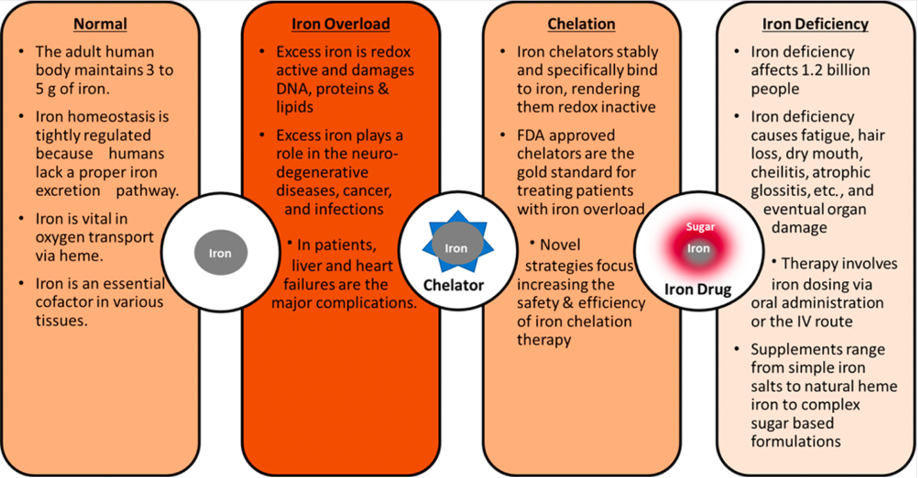Iron, an essential mineral involved in many important biological pathways, serves as a prosthetic group for a variety of proteins involved in vital cellular processes.
Because of the lack of proper iron excretion pathways, it is highly conserved to coordinate iron acquisition, storage, transport, and recycling in an efficient and balanced manner. Disturbances in iron regulation can lead to an excess iron burden, in which an ensuing iron-mediated generation of reactive oxygen species imparts widespread oxidative damage to proteins, lipids, and DNA. Conversely, iron deficiency due to genetic causes, nutritional deficiencies, and certain disease conditions can lead to a number of iron deficiency disorders.
Iron chelation strategies have been in play since the early 1900s, and they still remain the most viable therapeutic approach to mitigate the toxic side effects of excess iron. And over the past 30 years, many researchers have focused specifically on ways to improve the efficacy of chelation strategies while being well tolerated and accepted by patients. Because of the prominent role of iron in various oxidative stress-related diseases, such as inflammation, cancer, bacterial infections, cardiovascular diseases, and neurodegenerative diseases, more attention is needed in these areas. There is a greater potential for finding alternate treatments for these diseases by targeting iron. Our recent understanding of the role of iron in the pathogenesis of different diseases (both in iron overload and iron deficiency conditions) has prompted the need to develop new therapeutic approaches (iron depletion or delivery) to treat different diseases.

Abbasi, U., Abbina, S., Gill, A., Takuechi, L. E., & Kizhakkedathu, J. N. (2021). Role of iron in the molecular pathogenesis of diseases and therapeutic opportunities. ACS Chemical Biology, 16(6), 945-972. [Link]
